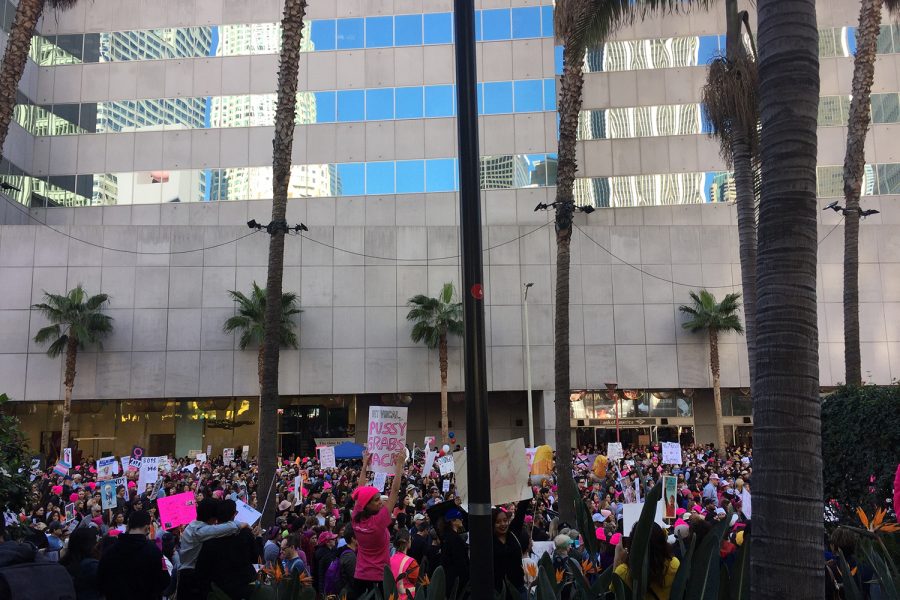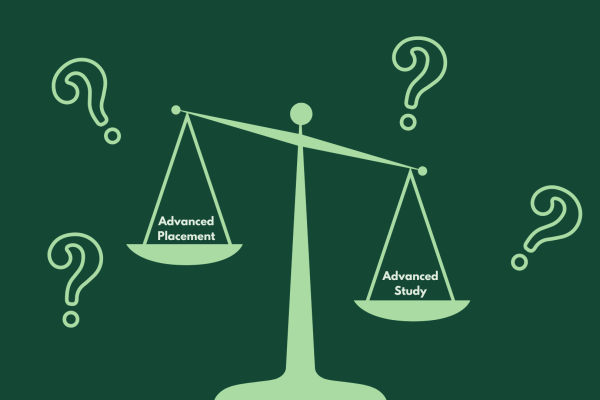Editorial: Intersectionality, inclusivity is necessary for Women’s History Month
Photo credit: Isabella Specchierla
In 2016, current junior Isabella Specchierla attended the Women’s March in Los Angeles. Specchierla describes her experience as “powerful”.
March 22, 2021
When people say “Women’s History Month,” who does that really include? All women? Or just certain ones? According to Women’s History Month’s website, “It is a time for commemorating and encouraging the study, observance and celebration of the vital role of women in American history.” Year after year, Women’s History Month celebrates white women: Elizabeth Cady Stanton, Eleanor Roosevelt, Betty Friedan and Gloria Steinem. These four women are commonly associated with the month and they have without a doubt made monumental strides for women’s rights, but it sets a precedent that Women’s History Month is merely for white, heterosexual and cisgender able-bodied females. However, March is a month that should celebrate the triumphs of all women.
Kimberle Crenshaw, a UCLA professor, civil rights advocate and expert in critical race theory, coined the term “intersectionality” in 1989 to describe how different aspects of identity — such as race, gender and class — can intersect and create unique experiences for individuals. As the term has become more widespread, its definition has immigrated from legal jargon and now encompasses an intersection of social dynamics.
Intersectionality does not stem from a divisive state but instead draws parallels between women and their experiences with race, class, ability, sexual orientation and more. As we continue to strive towards a more inclusive society, we must extend this intersectional mindset to the definition of “woman.”
“Intersectionality is a lens through which you can see where power comes and collides, where it interlocks and intersects,” Crenshaw said in an interview with Columbia Law School. “ It’s not simply that there’s a race problem here, a gender problem here, and a class or LBGTQ problem there. Many times that framework erases what happens to people who are subject to all of these things.”
According to the National LGBTQ Task Force, Nachale (Hua) Boonyapisomparn, a Thai trans woman activist said “I, personally, have learned to define femaleness under the spectrum of being woman; a woman who does not define herself with her biological sex, but her gender, sexual orientation, race, ethnicity, heritage, social class and spirituality. The international World Women’s day is another day of my 365 days that keep reminding me with my journey of being a woman, a strong woman of color who love herself.”
Stories like Boonyapisomparn’s serve as a powerful reason as to why March should encapsulate a diverse array of female experiences.
Representation matters.
Being heard matters.
Women of all backgrounds matter.
To this day, women still do not make as much money as men even if they are doing the same job. Women of color are particularly disadvantaged by this alarming statistic that is extremely embedded in contemporary society.
According to Prosperity Now, According to Prosperity Now — formerly the Corporation for Enterprise Development, which is dedicated to expanding economic opportunity for low-income families and communities in the United States — “Education is one area where women in all major racial and ethnic groups outperform men. Whether Latina, Black, White or Asian American, women’s college graduation rates are between five to 10 percentage points higher than men’s. However, superior education outcomes for women do not lead to superior incomes. Even with a higher likelihood of college education, the median income of all women is only 83% of that earned by men.”
Disheartening statistics like these prove how necessary recognition of women’s achievements and accomplishments are. Only by expanding the narrow scope of what it means to be an empowered woman can social change occur.
Whether a woman diverges or conforms to gender roles and societal standards, no matter what, empowerment coincides with choice. Women’s History Month serves as a reminder that women have fought for countless years to gain the right to choose their own future. To limit what it means to be an empowered woman simply goes against feminism as a whole. Equality, freedom and the power of choice are exactly what women all around the world continue to fight for.
Due to these consistent efforts, we choose to celebrate and amplify all women’s voices.





![Freshman Milan Earl and sophomore Lucy Kaplan sit with their grandparents at Archer’s annual Grandparents and Special Friends Day Friday, March 15. The event took place over three 75-minute sessions. “[I hope my grandparents] gain an understanding about what I do, Kaplan said, because I know they ask a lot of questions and can sort of see what I do in school and what the experience is like to be here.](https://archeroracle.org/wp-content/uploads/2024/03/grandparents-day-option-2-1200x800.jpg)





























































